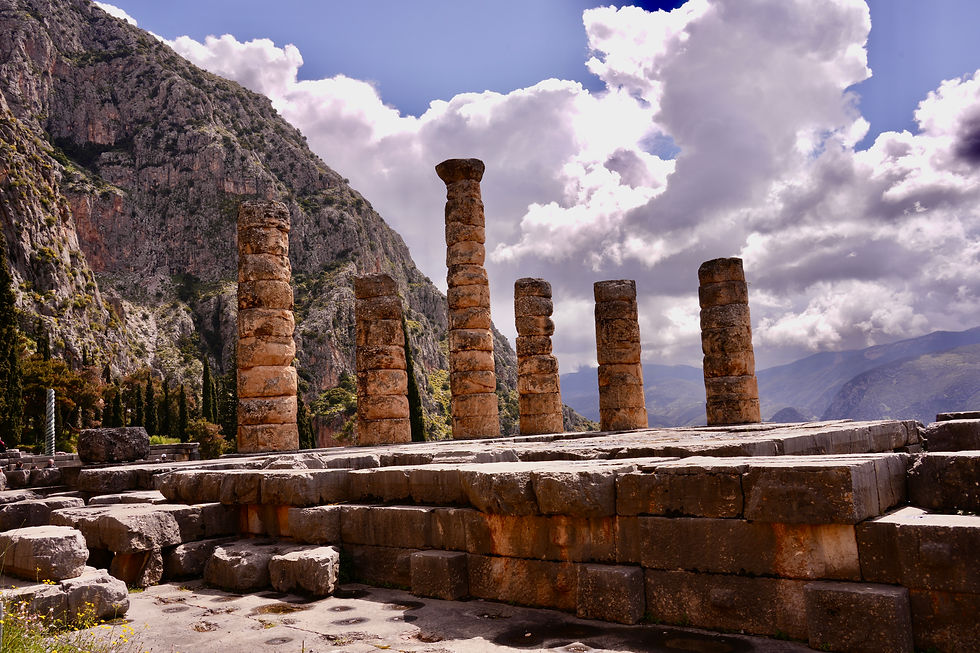ANCIENT DELPHI
- chuckmeltzer
- Aug 9, 2025
- 2 min read
Updated: Aug 11, 2025
We had Athens as our base for our various excursions. Delphi was a day trip slightly over two hours north and west of Athens. We visited it with a private guide and driver which made it very doable. It is the heart of Ancient Greece and is a memorable and worthwhile destination. The pan-Hellenic sanctuary of Delphi, where Apollo's oracle delivered prophecies, was home to the omphalos, the 'navel of the world'. Seamlessly blending with the stunning landscape and rich in sacred significance, Delphi in the 6th century B.C. was truly the religious hub and emblem of unity for the ancient Greek world.
Delphi is nestled between the towering Phaidriades (Shining) Rocks of Mt. Parnassus, located in the Regional unit of Phocis in Central Greece. This is where the Pan-Hellenic sanctuary of Apollo, the Olympian god of light, knowledge, and harmony, is situated. The area has been inhabited since the 2nd millennium BC, as evidenced by Mycenaean remains from 1500-1100 BC.
The sanctuary and oracle began to develop in the 8th century BC, and their religious and political influence across Greece grew significantly in the 6th century BC. During this period, their renown and prestige spread throughout the known world, attracting pilgrims seeking prophecies from the Pythia, Apollo's priestess. With its rich intangible heritage, Delphi was considered the world's center (omphalos) by the ancient Greeks: according to myth, it was where two eagles released by Zeus, one to the East and the other to the West, met.
The Temple of Apollo at Delphi is a revered temple of the Doric order, intricately linked with the site's tumultuous history. It experienced three transformations before reaching the ruinous state we see today, which dates back to the 4th century BCE.

Another important structure at the Delphi site is the ancient theater of Epidaurus, constructed in the fourth century BC under the guidance of architect Polykleitos the Younger, became the blueprint for all subsequent amphitheaters. Its acoustic properties were so exceptional that it is said even those seated in the back row could hear the performers' speech clearly, long before the advent of microphones and loudspeakers. Originally built as a sanctuary dedicated to Asclepius, the ancient Greek god of medicine, it hosted music and theater events in his honor for 800 years. On days without performances, people visited the theater to receive treatment from priests for their ailments.

The impressive monumental complex is a human-made environment that seamlessly integrates with the rare natural landscape, which was integral to the organization of the cults. This enduring harmonious relationship, preserved from ancient times to the present, makes Delphi a unique monument and an invaluable legacy passed down by the ancient Greek world to future generations.























Comments